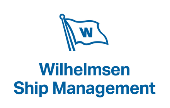Making Waves: New Study Identifies Opportunities for a Sea of Benefits along Green and Digital Shipping Corridor between Singapore, Los Angeles and Long Beach
2. The study, commissioned by C40 and the ports, and conducted by the American Bureau of Shipping, analysed maritime trade flows between Singapore, Los Angeles and Long Beach, and provided a baseline of activities and energy demand requirements for vessels operating on the corridor through to 2050. The conclusion of the study follows the successful unveiling of the corridor’s Partnership Strategy at the 28th United Nations Climate Change Conference (COP28/CMP18/CMA5) in December 2023, which outlined the corridor’s goals, partnership structure and governance mechanism. The study estimates the quantity of near-zero and zero-emission fuels required for this traffic by modelling the adoption of zero and near-zero carbon alternative fuels by vessels operating on the corridor through to 2050, considering various parameters such as fuel production costs and fuel availability, and in view of the targets in the 2023 IMO Strategy on Reduction of Greenhouse Gas Emissions from Ships[1]. The study can be found at: https://c40.me/3xF60Yw.
3. On a practical level, the study highlights the potential socio-economic impact of transitioning to zero and near-zero emission fuels and leveraging on digital solutions. Based on the study’s estimates, the corridor at full implementation could create over 700 new job opportunities in zero and near-zero emission fuel production and improve local air quality. These estimates support findings by C40 and other organisations that activities undertaken through green shipping corridors can catalyse wider decarbonisation across the maritime industry and unlock health benefits for local communities and green economy opportunities for participating countries.
4. As leading global ports, Singapore, Los Angeles and Long Beach are vital nodes on the trans-Pacific shipping lane and are key stakeholders in the maritime sector’s green and digital transition. Alongside 20 leading ports and port cities, MPA, POLA, and POLB are members of C40's Green Ports Forum, a prominent global platform for collaborative climate action that actively champions ambitious green shipping corridors, acknowledging their central role in the ports and shipping sectors’ green transition.
5. The corridor partners underscore their dedication to a data-driven decision-making approach through the study, utilising its insights to guide their actions in pursuing the partnership's decarbonisation objectives and aligning with the decarbonisation goals of the shipping sector. Key findings of the study include:
- Vessels operating on the corridor represent 7% of the world’s container trade, which is about 1% of Singapore's, 14.5% of Port of Long Beach’s, and 20% of Port of Los Angeles’ traffic.
- The projected annual energy demand of vessels on the corridor is estimated to be approximately 60,000 terajoules (TJ), equivalent to approximately two months of Singapore’s national electricity generation.
- Shipping demand on the corridor is estimated to be around 850,000 tons of methanol and 160,000 tons of ammonia annually by 2030, displacing the equivalent GHG emissions from almost 320,000 cars annually.
- The transition to zero and near-zero emission fuels could potentially create approximately 700 jobs in the production and supply chain of such fuels by 2030.
7. The meeting and subsequent working groups will focus on developing green and digital solutions to address the following focus areas within the corridor:
- Enable the supply and adoption of zero and near-zero emissions fuels (e.g. green ammonia, green methanol) at scale, including safety, emergency response, mitigation and standards-setting.
- Develop and scale-up the adoption of energy efficiency solutions, including through digital tools (e.g. route optimisation, remote monitoring) and technologies that reduce fuel consumption (e.g. wind-assisted propulsion).
- Develop and encourage the adoption of digital technologies to support the monitoring, reporting and verification of GHG emissions along the corridor.
8. All three ports will participate in the Accelerating Digitalisation and Decarbonisation Conference organised by MPA as part of SMW 2024 and in a moderated discussion convened by C40 on the sidelines of SMW 2024 entitled ‘Navigating Collaboration: Governance of Green Shipping Corridor Partnerships’, where C40 will unveil its new report and share insights into best practices for GDSC effective governance.
9. Mr Teo Eng Dih, Chief Executive of MPA, said: “Shipping is a new pillar in the multi-faceted partnership with the US. The GDSC with the Ports of Los Angeles and Long Beach highlights the importance of working with industry, researchers, government and society through innovation and capacity building. With traffic along the GDSC accounting for 7% of the world’s container trade, the initiatives by GDSC partners and stakeholders will help generate growth and new opportunities for maritime professionals.”
10. Port of Los Angeles Executive Director Gene Seroka said: “This study provides a sense of scale and scope to inform our implementation of the Green and Digital Shipping Corridor. Achieving the reductions of greenhouse gas emissions required will take coordination and commitment from public and private stakeholders across the maritime and goods movement industries. We’re proud to be collaborating with industry partners to make this corridor a reality.”
11. “The Port of Long Beach and its partners have been very successful reducing emissions from cargo-handling equipment, trucks and other mobile sources moving cargo in our harbor,” said Port of Long Beach CEO Mario Cordero. “One of the most important parts of this partnership is it allows us to better understand and target a source of emissions that is hard for us to control as a local seaport authority – shipborne emissions. This work, vital to our net zero-emission quest, will result in economic and health benefits all along the trans-Pacific trade corridor.”
12. C40 Executive Director, Mark Watts said: "Accelerating efforts to decarbonise the shipping sector is urgent if we are to limit global heating to 1.5°C. C40 is proud to support this first-mover initiative which has the potential not only to support the development and uptake of low- and zero-carbon fuels and vessels, but also create good green jobs and health benefits for local communities by doing so.”
[1] The Revised Strategy commits Member States to peak greenhouse gas (GHG) emissions from international shipping as soon as possible and reach net-zero by or around, i.e. close to 2050, taking into account different national circumstances whilst pursuing efforts to phase them out. The Revised Strategy further included targets to reduce GHG emissions from international shipping by at least 20%, striving for 30% by 2030, and by 70%, striving for 80%, by 2040.
Published 18 Apr 2024
Innovation Partners
SMW 2025 SPONSORS & MEDIA PARTNERS
More sponsors coming onboard soon!
Trade Media Partners
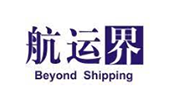











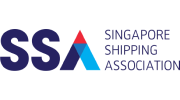
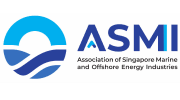






.png?sfvrsn=32fb3a0e_1)
.png?sfvrsn=7a5961fe_1)
.png?sfvrsn=b5b25f29_1)
.png?sfvrsn=b06dcbc5_1)
.png?sfvrsn=15c03f61_1)
.png?sfvrsn=c5172256_1)








.png?sfvrsn=3804bc16_1)





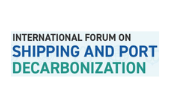

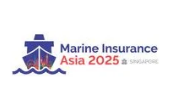




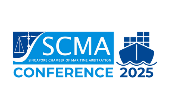
.png?sfvrsn=cada7bc1_1)


